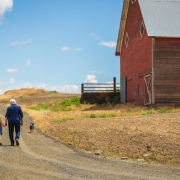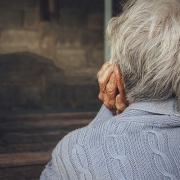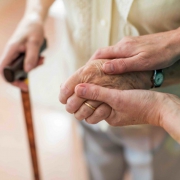The Job of Family Caregiving
Instead of paying someone else or transferring a senior loved one to a facility, wouldn’t it be much better if a family member gave them care at home? The family member can pay the bills, balance the checkbook, keep the house clean, shop and make meals, and take their aging parent on outings and to the doctor. The senior stays in familiar surroundings getting the care and attention they need, and the family member can even be paid, so they don’t give away their time and labor for free.
What Should Be Simple May Require Legal Guidance
The daughter, Jessica, quit her job to care for Ellen, her mother. But when Ellen fell and needed nursing-home care, the caregiving arrangement cost them nearly $70,000.00 in lost Medicaid benefits. This led to litigation.
The court was sympathetic but was still unable to help. The judge understood that Ellen might as well pay Jessica rather than a third party to provide companion services, especially because she is a member of the family and had Ellen’s best interests in mind. Nevertheless, the court ruled that Jessica failed to document her hours and services with a contract as the law requires. Without that proof, the court found that Jessica should have returned to work instead, where she would have earned more and could afford to hire an agency. Without the required proof, it appeared that mother and daughter had entered into the caregiving arrangement only to give money to Jessica.
Medicaid has Strict Rules Regarding Paid Caregiving Arrangements
The Medicaid rules penalize people for gift-giving, even in a case like Ellen’s. Money or property must not be given away during a five-year lookback period prior to the need for long-term care services. By breaking this rule, Ellen no longer had Medicaid benefits to pay for the extremely high cost of nursing home care.
Other Complications in Family Caregiver Situations
Even if Jessica had treated caregiving like any other job, and if she had documented her work as the law requires with a signed caregiver contract specifying working hours and services provided, and logged her hours as the law also requires – payment under a caregiver agreement must also be reported to the IRS for income tax purposes, or risk stiff penalties.
There is also a risk that a caregiver could be injured on the job. Worker’s compensation insurance would be a good idea.
Consulting and Elder Law Attorney
How a family caregiver is paid is important. It may not be possible for them to receive a lump sum of money; instead, an hourly payment arrangement is required. The hourly rate must match the type of care being provided and the experience level of the caregiver.
A family caregiving arrangement can work under the following circumstances:
- The caregiver must be capable of the hard work involved
- They must be properly contracted with hours logged and documented
- Taxes on the compensation must be properly paid
If your family member treats caregiving like any other employer-employee relationship, the arrangement can be rewarding. But the record-keeping and documentation can be tricky, and mistakes can be very expensive.
To benefit from family caregiving without financial penalties, please contact our elder law attorneys for help. Our law firm is dedicated to keeping you informed of issues that affect seniors who may be experiencing declining health. We help you and your loved ones prepare for potential long-term medical expenses and the need to transition to in-home care, assisted living care, or nursing home care.
This article offers a summary of aspects of elder law. It is not legal advice and does not create an attorney-client relationship. For legal advice, contact our Ruston, LA office by calling us at (318) 255-1760.





